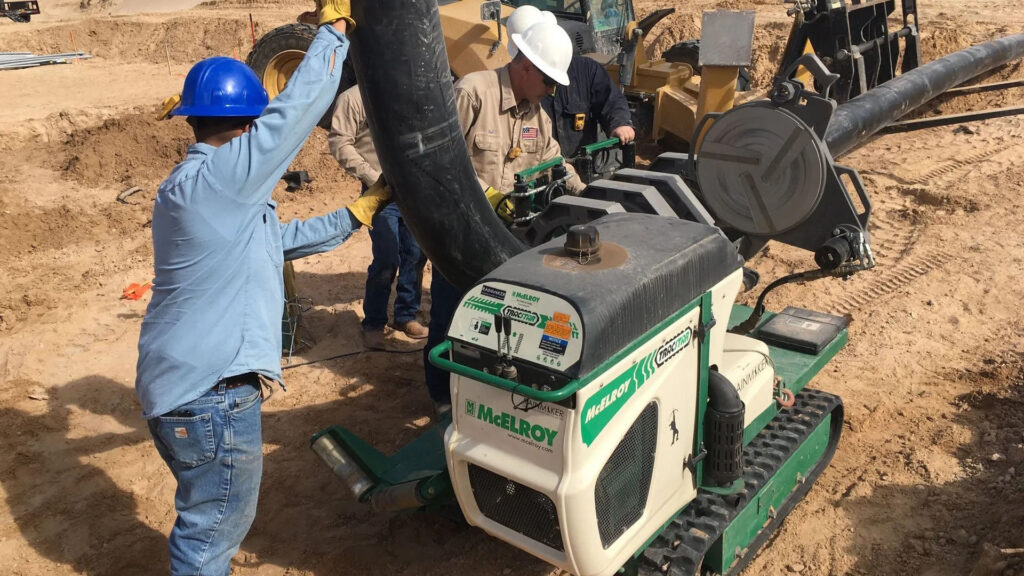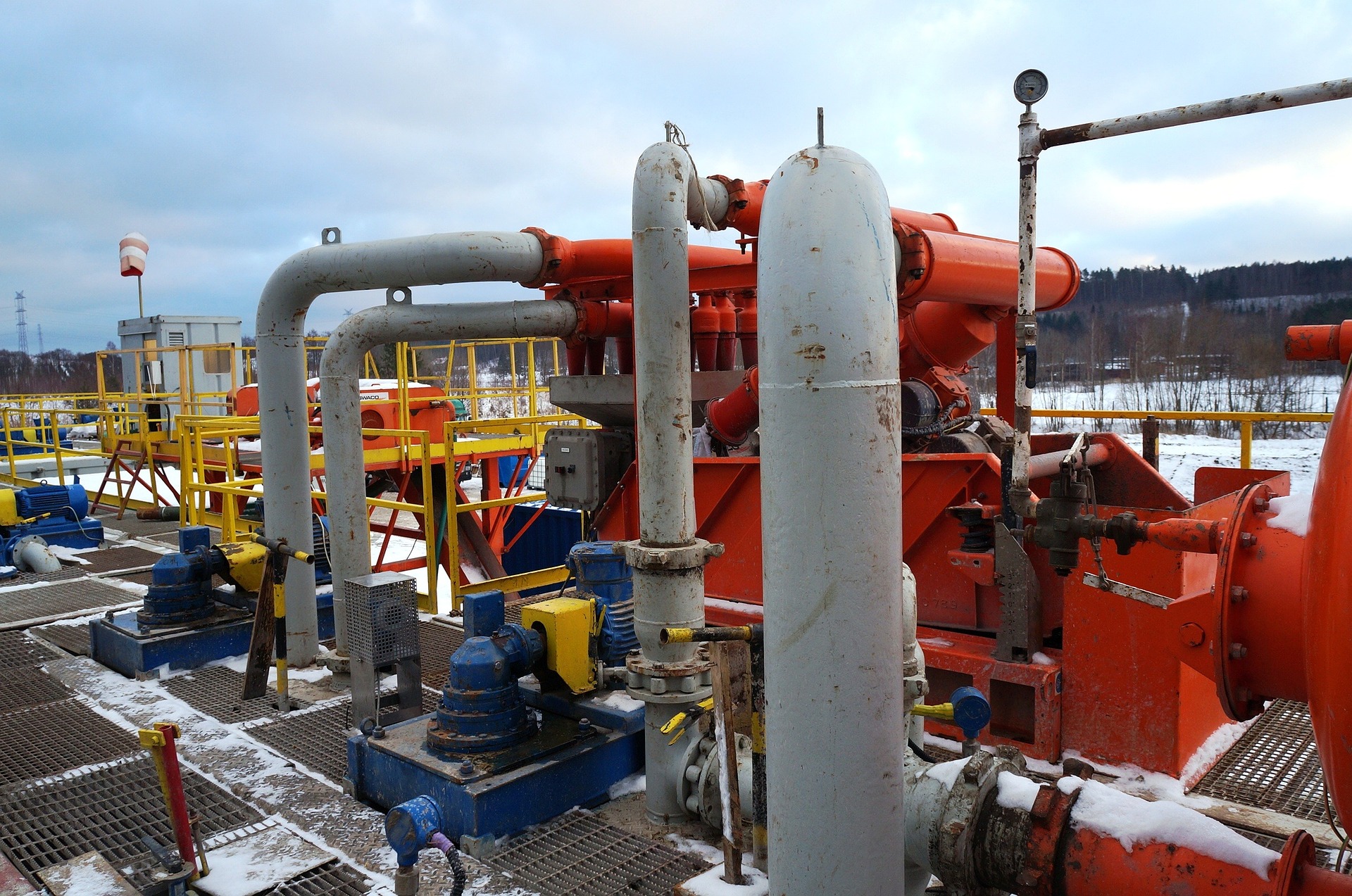A Comprehensive Overview to the Various Kinds of Oil Field Equipment and Pipeline Equipment Available
The oil and gas sector depends heavily on specialized devices for efficient extraction and transport. Different sorts of machinery, from drilling rigs to tank, play essential roles in this complicated process. Each tool offers unique functions that add to general operational success. Recognizing these elements is necessary for anybody included in the industry. As the sector evolves, so also do the technologies that sustain it. What developments are on the horizon?

Drilling Rigs: The Foundation of Oil Exploration
Drilling rigs function as the important machinery in the domain of oil exploration, allowing business to accessibility hydrocarbon reserves buried deep underneath the Earth's surface. These rigs come in various types, including land rigs, offshore rigs, and mobile systems, each developed to run in certain atmospheres. Furnished with advanced technology, piercing rigs can pass through geological developments with precision, making sure efficient source extraction. The architectural honesty and operational abilities of these rigs are crucial, as they need to endure extreme conditions and substantial pressures. The option of an exploration gear influences the total task expense and timeline, making it an important consideration for oil firms seeking to maximize their exploration efforts and make best use of productivity in their procedures.
Pumps: Necessary for Liquid Movement
In the oil removal procedure, the function of pumps is considerable, assisting in the activity of liquids throughout various stages of manufacturing. Pumps are essential for moving crude oil, water, and other liquids from below ground storage tanks to the surface area and afterwards via pipes to refineries. They come in various types, consisting of centrifugal, positive displacement, and completely submersible pumps, each offering details purposes based on the fluid qualities and functional needs. Centrifugal pumps are typically utilized for their performance in high-flow applications, while favorable displacement pumps master handling viscous fluids. The option of pump effects total efficiency, functional safety and security, and maintenance costs. Correct selection and maintenance of pumps are important for enhancing production and reducing downtime in oil area operations.
Shutoffs: Managing Circulation and Pressure

Shutoffs play an essential duty in taking care of the circulation and stress of liquids within oil fields and pipelines. Numerous kinds of valves serve unique applications, each designed to fulfill details functions basic for effective operation - Superior Rentals Contact. Understanding the qualities and uses of these shutoffs is essential for enhancing system performance and security
Sorts of Valves
Crucial elements in oil area operations, valves play a crucial duty in regulating the flow and stress of liquids within pipelines and devices. Numerous sorts of shutoffs are made use of to meet the diverse demands of oil and gas manufacturing. Usual kinds include gate shutoffs, which give a straight-line flow and minimal stress drop; world shutoffs, recognized for their strangling abilities; and sphere valves, identified for their quick on/off control. Furthermore, check shutoffs prevent heartburn, while butterfly valves offer a lightweight remedy for regulating circulation. Each valve type is created with details materials and configurations to hold up against the severe conditions usually discovered in oil areas, making sure reliability and efficiency in procedures. Recognizing these kinds is important for effective system management.
Valve Applications and Functions
While numerous kinds of valves offer distinct objectives, their key applications focus on regulating flow and stress within oil and gas systems. Shutoffs such as entrance, world, and sphere shutoffs regulate liquid activity, guaranteeing peak performance and safety. Gate shutoffs are commonly made use of for on/off control, providing marginal circulation resistance. World shutoffs, on the other hand, deal accurate flow guideline, making them appropriate for throttling applications. Round shutoffs are preferred for their fast procedure and tight sealing capabilities. Additionally, stress safety valve are important for protecting against system overpressure, safeguarding tools integrity. On the whole, the ideal selection and application of shutoffs enhance functional effectiveness, guaranteeing the reliable transport of oil and gas with pipes and handling centers.
Compressors: Enhancing Gas Transport
Compressors play an important role in the effective transport of all-natural gas, guaranteeing that it relocates efficiently with pipelines over fars away. These gadgets boost the stress of gas, enabling it to overcome friction and elevation modifications within the pipeline system. Additionally, compressors promote the balancing of supply and need, suiting fluctuations in intake and production rates. Different sorts of compressors are employed in the sector, consisting of centrifugal, reciprocating, and rotating screw compressors, each offering unique benefits based on the functional requirements. Normal upkeep of these compressors is essential to make the most of effectiveness and minimize downtime, inevitably adding to a reputable gas transportation network. Their vital feature emphasizes the significance of compressors in the general oil and gas framework.
Storage Tanks: Safe and Efficient Fluid Management
Effective transportation of gas relies upon various sustaining systems, one of which is the appropriate administration of tank. These storage tanks play an essential function in safely having fluids, guaranteeing that operational efficiency is maintained while reducing environmental risks. Created from durable materials, they are developed to endure high stress and corrosive elements. Properly sized and strategically located, storage space containers facilitate the smooth flow of gas and various other fluids, preventing traffic jams in supply chains. Normal maintenance and surveillance are vital to spot leakages or architectural concerns, promoting safety and conformity with regulative requirements. Inevitably, the effective administration of tank is important for the total honesty and reliability of the oil and gas market's fluid handling systems.
Pipeline Equipments: Facilities for Transport
Pipeline systems work as the foundation of the oil and gas market, facilitating the efficient transport of hydrocarbons over large ranges. These systems include different elements, including pipelines, valves, pumps, and compressors, all thoroughly developed to guarantee smooth circulation. The materials utilized in pipeline building and construction, frequently steel or high-density polyethylene, are selected for durability and resistance to rust. Pipeline networks can span throughout land and water, connecting production sites to refineries and circulation. In addition, advanced innovation allows real-time surveillance of flow rates and stress levels, improving functional effectiveness. The tactical placement of these pipelines minimizes ecological impact while optimizing source ease of access, thus playing a necessary duty in conference power needs internationally.
Safety And Security Equipment: Making Certain Worker and Environmental Management
The procedure of pipeline systems, while essential for power transport, likewise provides significant safety challenges for employees and the atmosphere. Security equipment plays a significant duty in mitigating these risks. Individual protective tools (PPE) such as helmets, gloves, and non-slip footwear safeguards employees from physical hazards. Furthermore, gas detection inch poly water line systems check for leaks, making certain that hazardous compounds do not posture a threat to employees or the surrounding community. Emergency shutdown systems are essential for promptly stopping operations throughout a crisis, stopping potential calamities. Spill control materials, consisting of absorbents and obstacles, are fundamental for lessening environmental impact. On the whole, spending in comprehensive safety tools is essential Related Site for maintaining operational integrity and securing both employees and the setting in the oil and gas field.

Frequently Asked Concerns
How Do I Pick the Right Oil Field Equipment for My Project?
Picking the ideal oil field tools involves assessing task specs, budget plan constraints, and functional demands. Take into consideration aspects such as equipment integrity, compatibility with existing systems, and the provider's track record to guarantee peak efficiency and safety and security.
What Are the Maintenance Demands for Oil Field Equipment?
Upkeep demands for oil field tools include routine assessments, lubrication, and prompt repair water leak under house services. Operators must additionally follow supplier standards, screen efficiency metrics, and warranty compliance with security policies to improve long life and effectiveness.

Just How Can I Guarantee Conformity With Environmental Rules?
To ensure conformity with environmental policies, companies have to carry out routine audits, execute ideal practices, invest in training, keep appropriate paperwork, and stay upgraded on regulation (Superior Oilfield pipeline equipment rentals). Collaboration with environmental agencies can likewise boost adherence to guidelines
What Is the Ordinary Life Expectancy of Pipeline Equipment?
The typical life expectancy of pipeline equipment generally varies from 20 to 50 years, depending on factors such as material top quality, environmental conditions, and upkeep practices. Regular assessments can substantially affect long life and functional performance.
How Do I Safely Transport Oil Field Equipment to Remote Locations?
Moving oil field devices to remote areas needs mindful planning, consisting of route assessment, safeguarding permits, using proper automobiles, and ensuring safety methods are complied with. Proper training and communication amongst crews are essential for effective transportation.